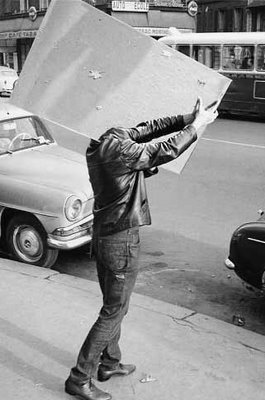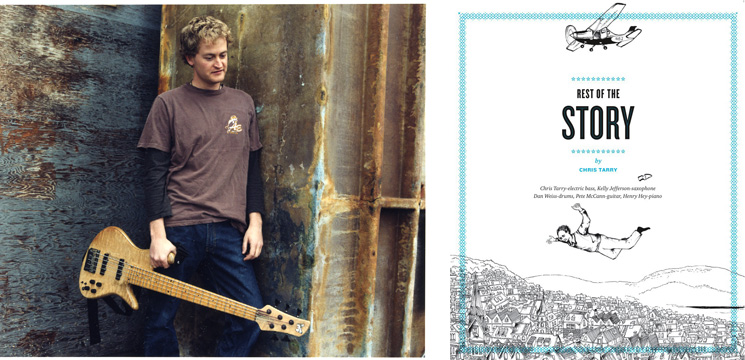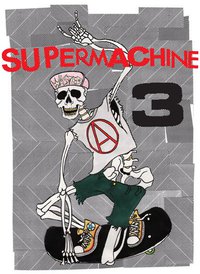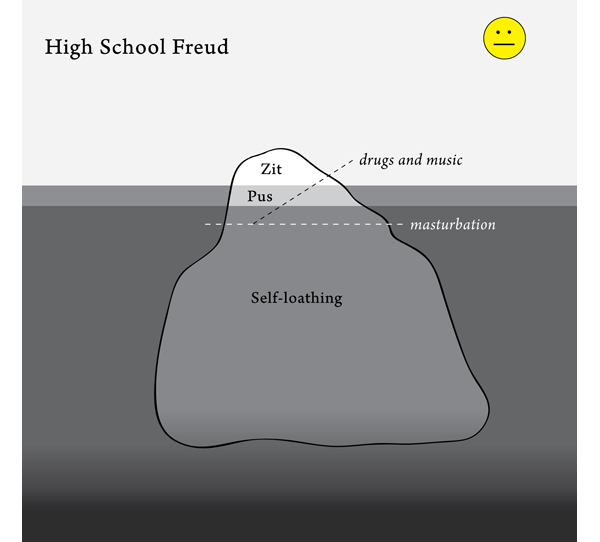Interview Roundup Part Four: Place, Jones, Sneed, Dark, Means
 “For about 15 minutes a day for 41 days I wrote whatever came into my head. I then began elaborating on these bits. Having a hobbyist’s fascination for neurology, I figured they would being to knit themselves into some sort of pattern, or narrative. They did, though not necessarily all interwoven. I had also heard repeatedly that it was impossible to write a Los Angeles novel about all of Los Angeles. This seemed a stupid challenge to me, and I very much like stupid challenges.” – Vanessa Place, in Examiner
“For about 15 minutes a day for 41 days I wrote whatever came into my head. I then began elaborating on these bits. Having a hobbyist’s fascination for neurology, I figured they would being to knit themselves into some sort of pattern, or narrative. They did, though not necessarily all interwoven. I had also heard repeatedly that it was impossible to write a Los Angeles novel about all of Los Angeles. This seemed a stupid challenge to me, and I very much like stupid challenges.” – Vanessa Place, in Examiner
 “I don’t know. There are points in there—I mention the U.S. Census. I think what they are talking about is, I had—this is a real county. I just gave it a different name. Well, in fact, in addition to my intention of doing the research, I was going down to Lynchburg (VA) to visit a friend of mine and use his county as a setting for the novel. I was going to call whatever his county is Lynchburg County or something. But I never got around to visiting him. So I had to create my own place. In doing that I was sort of freed [up], because had I used his county I would have had to know every single thing there is to know about that place in case someone came along and said, “Well, you got this fact wrong.” But if I created my own Manchester County I can say the U.S. Census in 1840 said this many people, and this many people. I can say these three people in the 20th century wrote these history books about this county. And they said this, that and the other. It’s all out of my imagination. I was freed because of that.” – Edward P. Jones, in Identity Theory
“I don’t know. There are points in there—I mention the U.S. Census. I think what they are talking about is, I had—this is a real county. I just gave it a different name. Well, in fact, in addition to my intention of doing the research, I was going down to Lynchburg (VA) to visit a friend of mine and use his county as a setting for the novel. I was going to call whatever his county is Lynchburg County or something. But I never got around to visiting him. So I had to create my own place. In doing that I was sort of freed [up], because had I used his county I would have had to know every single thing there is to know about that place in case someone came along and said, “Well, you got this fact wrong.” But if I created my own Manchester County I can say the U.S. Census in 1840 said this many people, and this many people. I can say these three people in the 20th century wrote these history books about this county. And they said this, that and the other. It’s all out of my imagination. I was freed because of that.” – Edward P. Jones, in Identity Theory
 “You can’t be afraid of what people will say about your work, otherwise you’re going to have a very loud invisible audience in the room while you’re writing. And just like when you’re in the sack, you don’t want an audience. At least I don’t think you do. I don’t, in any case.” – Christine Sneed, in The Nervous Breakdown
“You can’t be afraid of what people will say about your work, otherwise you’re going to have a very loud invisible audience in the room while you’re writing. And just like when you’re in the sack, you don’t want an audience. At least I don’t think you do. I don’t, in any case.” – Christine Sneed, in The Nervous Breakdown
 “I don’t know if there are ghosts. I’ve had experiences, but that doesn’t prove they exist. I lived in an apartment in New York where there was a ghost, and I used that for the last scene in the book where Jane feels a presence in her apartment. But I didn’t make it clear if that came from outside her or inside her. I do think that people have those experiences, but what it is, I’m not sure. I also believe in more subtle experiences where people have the chance to communicate with dead people in all kinds of ways. It’s happened to me and to many people. There’s not as much as a barrier as we think between the living and the dead. Whether it manifests as a ghost, or a strong sense of that person’s spirit, even in your own mind, it’s a very powerful experience. I chose a ghost for the story because it’s the most extreme form of that experience.” – Alice Elliott Dark, in Beatrice
“I don’t know if there are ghosts. I’ve had experiences, but that doesn’t prove they exist. I lived in an apartment in New York where there was a ghost, and I used that for the last scene in the book where Jane feels a presence in her apartment. But I didn’t make it clear if that came from outside her or inside her. I do think that people have those experiences, but what it is, I’m not sure. I also believe in more subtle experiences where people have the chance to communicate with dead people in all kinds of ways. It’s happened to me and to many people. There’s not as much as a barrier as we think between the living and the dead. Whether it manifests as a ghost, or a strong sense of that person’s spirit, even in your own mind, it’s a very powerful experience. I chose a ghost for the story because it’s the most extreme form of that experience.” – Alice Elliott Dark, in Beatrice
 “I think if you’re really good at something you should keep doing it. One of the things that’s going on with a lot of writers today is that they get big contracts for two- or three-book deals, and they get caught in the intense need to fulfill that contract. They crank the novels out. As a short story writer, I’m under pressure to write a novel now, but it seems stupid to me to just make yourself work in a completely different genre if you’re already doing what you want to do.” – David Means, at Powells
“I think if you’re really good at something you should keep doing it. One of the things that’s going on with a lot of writers today is that they get big contracts for two- or three-book deals, and they get caught in the intense need to fulfill that contract. They crank the novels out. As a short story writer, I’m under pressure to write a novel now, but it seems stupid to me to just make yourself work in a completely different genre if you’re already doing what you want to do.” – David Means, at Powells
Aubade 7
I am breaking spring and have finally decided, like many others, the morning is the capital time to write:
1. Mind is wire-scrubbed clean or the opposite, LSD-like dreams. (I recently awoke at the foot of the bed, on the floor, wrapped in residue of twisted thoughts/a past nursing school instructor squawking me down/sweaty blankets). Both states of mind are useful.
2. Stomach is empty. A full stomach makes for naps, not crisp writing. Breakfast is bullshit, as we know.
3. 1,3,7-trimethylxanthine nudges the nerve impulses with a knife and goes Kelly Clarkson on your dopamine. 1,3,7-trimethylxanthine is caffeine. Coffee is morning. Like with running or mint-thinning or higher math, caffeine can assist you.
11. Unless you are Marguerite Duras, you are probably not drunk (though possibly hungover, an odd state not always detrimental to writing).
4. Birds cough. Much better chance of seeing coyotes.
4. Due to tidal friction, nutation, and polar motion, the internet doesn’t work well in the early morning hours. This is a good thing.
The world ended in 1978, we’ve been living in Paul McCartney’s peehole for thirty years.
I don’t believe the apocalypse will be violent,
just as I don’t expect much of a jar
when machines do what
we don’t want to do.
O excuse me, enjoy yr showr!
The descent to nothing will be the party of forever because
bliss means never having to say I know what’s going on.
That’s why I think the world ended in 1978
at the filming of this music video.
“The Peaches Are Cheap” from LOOK! LOOK! FEATHERS by Mike Young
 It occurred to me, hanging out with Mike Young last weekend, that I/maybe we have not talked enough about Mike’s really fantastic collection of stories, LOOK! LOOK! FEATHERS here on HTML Giant. I will endeavor to do so, to at least offer an impression of each story, over the coming weeks.
It occurred to me, hanging out with Mike Young last weekend, that I/maybe we have not talked enough about Mike’s really fantastic collection of stories, LOOK! LOOK! FEATHERS here on HTML Giant. I will endeavor to do so, to at least offer an impression of each story, over the coming weeks.
So, PART ONE.
Placed at the beginning of the book of stories is “The Peaches Are Cheap,” a flash meant maybe not just to be itself, but meant instead to be the slow, disjointed, “look around, case the joint,” opening of all that comes after. It’s a couple of dudes in a car, and all the stuff they see—all this stuff that promises to act like hooks through the rest of the book. These hooks on which we hang the answers to our “where the fuck are we” questions. Hang the things we unpack to learn about where the whole where of the book is. READ MORE >
The inspiration for HTML Giant is discussed in this fine interview with His Most Massive, Blake Butler.
Check It Out: The Rest of the Story by Chris Tarry
Sometimes writers really surprise me. Rest of the Story is a short story collection and album by writer and electric bassist Chris Tarry. Actually, Rest of the Story is an album first with nine jazz compositions, then a small collection of fiction containing four really tight, interesting, at times surreal stories. The collection itself is the case for the compact disc containing the album. The album is actually the rest of the story. You have to buy Rest of the Story to understand how awesome the concept and how impeccably it is executed, is but there are some pictures below and here is a short video about the project.
Interview Roundup Part Three: Straub, Lopez, DeLillo, Morrison, Doctorow
 “Even when I was in college, that’s always what my professors would say: ‘your voice is so detached.’ What does that mean? I don’t know! I don’t think you really get to choose the way your voice is on a page. A lot of these stories are extremely internal and that just felt natural to me. What’s supposed to happen in a short story? Is a comet supposed to hit? No! For me, the short stories I really love — not the only stories I love, but the stories I love best — are really, really quiet. They’re about someone just thinking and trying to figure something out. Like Margaret Atwood’s story, ‘Death by Landscape’ — she’s just thinking about her friend going missing at summer camp fifty years ago, but it’s really just an old woman sitting in her apartment. Perfect. I don’t need explosions.” – Emma Straub, in Full-Stop
“Even when I was in college, that’s always what my professors would say: ‘your voice is so detached.’ What does that mean? I don’t know! I don’t think you really get to choose the way your voice is on a page. A lot of these stories are extremely internal and that just felt natural to me. What’s supposed to happen in a short story? Is a comet supposed to hit? No! For me, the short stories I really love — not the only stories I love, but the stories I love best — are really, really quiet. They’re about someone just thinking and trying to figure something out. Like Margaret Atwood’s story, ‘Death by Landscape’ — she’s just thinking about her friend going missing at summer camp fifty years ago, but it’s really just an old woman sitting in her apartment. Perfect. I don’t need explosions.” – Emma Straub, in Full-Stop
“Somehow the same concerns keep coming up. Most of the characters seem to be confused, unsure of how it is they are supposed to live. This reminds me of the wonderful epigraph to Grace Paley’s Collected Stories, which itself is one of my favorite pieces of writing. Ms. Paley relays a story about her friend and colleague in the ‘writing and mother trade.’ She asks Grace a few days before she dies, ‘The real question is, how are we to live our lives?’ The narrators and characters always seem to be entirely baffled by their circumstances. They find themselves put upon and disconnected. They usually cannot account for what has happened to them, let alone how to address the problem(s). Another concern is language and how inadequate it can be. I never consciously set out to write about these issues, but these issues keep coming up.” – Robert Lopez, in Bookslut
 “A novel determines its own size and shape and I’ve never tried to stretch an idea beyond the frame and structure it seemed to require. (Underworld wanted to be big and I didn’t attempt to stand in the way.) The theme that seems to have evolved in my work during the past decade concerns time—time and loss. This was not a plan; the novels have simply tended to edge in that direction. Some years ago I had the briefest of exchanges with a professor of philosophy. I raised the subject of time. He said simply, “Time is too difficult.” Yes, time is a mystery and perhaps best examined (or experienced by my characters) in a concise and somewhat enigmatic manner. Next book may be a monster. (Or just a collection of short stories.)” – Don DeLillo at PEN
“A novel determines its own size and shape and I’ve never tried to stretch an idea beyond the frame and structure it seemed to require. (Underworld wanted to be big and I didn’t attempt to stand in the way.) The theme that seems to have evolved in my work during the past decade concerns time—time and loss. This was not a plan; the novels have simply tended to edge in that direction. Some years ago I had the briefest of exchanges with a professor of philosophy. I raised the subject of time. He said simply, “Time is too difficult.” Yes, time is a mystery and perhaps best examined (or experienced by my characters) in a concise and somewhat enigmatic manner. Next book may be a monster. (Or just a collection of short stories.)” – Don DeLillo at PEN
 “In order to be as free as I possibly can, in my own imagination, I can’t take positions that are closed. Everything I’ve ever done, in the writing world, has been to expand articulation, rather than to close it, to open doors, sometimes, not even closing the book — leaving the endings open for reinterpretation, revisitation, a little ambiguity. I detest and loathe [those categories]. I think it’s off-putting to some readers, who may feel that I’m involved in writing some kind of feminist tract. I don’t subscribe to patriarchy, and I don’t think it should be substituted with matriarchy. I think it’s a question of equitable access, and opening doors to all sorts of things.” – Toni Morrison, in Salon
“In order to be as free as I possibly can, in my own imagination, I can’t take positions that are closed. Everything I’ve ever done, in the writing world, has been to expand articulation, rather than to close it, to open doors, sometimes, not even closing the book — leaving the endings open for reinterpretation, revisitation, a little ambiguity. I detest and loathe [those categories]. I think it’s off-putting to some readers, who may feel that I’m involved in writing some kind of feminist tract. I don’t subscribe to patriarchy, and I don’t think it should be substituted with matriarchy. I think it’s a question of equitable access, and opening doors to all sorts of things.” – Toni Morrison, in Salon
 “I grew up as a New Critic at Kenyon College. It was an historical response, you know, to a real lack of precision in critical thought. It was valuable in drawing attention to the text-in its presumption that the text itself could teach you everything you needed to know about it. I think what you describe as lethargy has more to do with the fact that with the Cold War the entire country, including a large part of the intellectual community, turned right. Domestically, the Cold War at its worst was a kind of civil religion with distinctly Puritan cruelties. People were cowed. It’s true that a generation rose up against the ideology in the 1960s, but by the seventies they were pretty well mopped up. The ranks of the public critics began to thin-the generations behind Edmund Wilson, Irving Howe and Alfred Kazin disappeared into the academy. Fled, one might say. There seemed to be a depoliticization of cultural life, generally. It was clear the USSR was a terrible mistake. But the correlate to that was … that anyone in America who wrote a political novel was writing a foolishly adversarial novel. It was possible according to Cold War orthodoxy to appreciate political novelists like Kundera from Czechoslovakia, or Coetzee or Gordimer from South Africa, but the American political novel was an egregious aesthetic error. A novel about an heroic CIA operative could be a good story… but a novel about a conscientious objector was a political tract.” – E.L. Doctorow, in Weber Journal
“I grew up as a New Critic at Kenyon College. It was an historical response, you know, to a real lack of precision in critical thought. It was valuable in drawing attention to the text-in its presumption that the text itself could teach you everything you needed to know about it. I think what you describe as lethargy has more to do with the fact that with the Cold War the entire country, including a large part of the intellectual community, turned right. Domestically, the Cold War at its worst was a kind of civil religion with distinctly Puritan cruelties. People were cowed. It’s true that a generation rose up against the ideology in the 1960s, but by the seventies they were pretty well mopped up. The ranks of the public critics began to thin-the generations behind Edmund Wilson, Irving Howe and Alfred Kazin disappeared into the academy. Fled, one might say. There seemed to be a depoliticization of cultural life, generally. It was clear the USSR was a terrible mistake. But the correlate to that was … that anyone in America who wrote a political novel was writing a foolishly adversarial novel. It was possible according to Cold War orthodoxy to appreciate political novelists like Kundera from Czechoslovakia, or Coetzee or Gordimer from South Africa, but the American political novel was an egregious aesthetic error. A novel about an heroic CIA operative could be a good story… but a novel about a conscientious objector was a political tract.” – E.L. Doctorow, in Weber Journal
NYers: SUPERMACHINE 3 RELEASE
THIS FRIDAY @ 8
LINE UP:
Sasha Fletcher
Levi Rubeck
Joseph Calavenna
Andrew Gorin
Lily Ladewig
CaConrad
Ben Pease
Ben Mirov
Mark Leidner
Rachel B. Glaser
Kristen Kosmas
(so good!)
Even if you don’t attend because you’re at Blake’s thing, SUPERMACHINE 3 is one of the best single editions of a literary journal I’ve ever read. I went cover to cover and skipped nothing and enjoyed everything. Highly, highly recommended.
Interview Roundup Part Two: Trethewey, Price, Schutt, Gaudry, Glaser
.jpg) “What interests me most about poetry is the elegant envelope of form and the kind of density and compression that a poem demands. Because of those demands, I think I get to work more with silences than if I were writing prose. The silences are as big a part in my poems as what is being said. I believe my poems do a lot of work with what is implicit, rather than what is explicit. I just finished writing a work of creative nonfiction, Beyond Katrina, and I noticed that even in prose I have a strong tendency to circle back; repetition is a thing that I make use of constantly. It seems to me to be more natural in poetry and yet it also appears in my other writing.” – Natasha Trethewey, in Waccamaw
“What interests me most about poetry is the elegant envelope of form and the kind of density and compression that a poem demands. Because of those demands, I think I get to work more with silences than if I were writing prose. The silences are as big a part in my poems as what is being said. I believe my poems do a lot of work with what is implicit, rather than what is explicit. I just finished writing a work of creative nonfiction, Beyond Katrina, and I noticed that even in prose I have a strong tendency to circle back; repetition is a thing that I make use of constantly. It seems to me to be more natural in poetry and yet it also appears in my other writing.” – Natasha Trethewey, in Waccamaw
 “No. I feel that my models came to me pretty early on, and it was who you mentioned—the early 20th century urban writers, like Richard Wright and Hubert Selby and Lenny Bruce—the language of Lenny Bruce. I like that rhythm, that high-speed, free-floating synaptic, anything comes out of your mouth, the acculturation, free-firing cultural riffs. Since then I sort of made my own way and made my own voice. I’ve read books that I admire, but nothing that made me, that taught me how to write.” – Richard Price, in Washington City Paper
“No. I feel that my models came to me pretty early on, and it was who you mentioned—the early 20th century urban writers, like Richard Wright and Hubert Selby and Lenny Bruce—the language of Lenny Bruce. I like that rhythm, that high-speed, free-floating synaptic, anything comes out of your mouth, the acculturation, free-firing cultural riffs. Since then I sort of made my own way and made my own voice. I’ve read books that I admire, but nothing that made me, that taught me how to write.” – Richard Price, in Washington City Paper
 “At eighteen I began reading biographies of writers: where had they gone to school? Were they married, childless, published before age thirty? Were they mad, alcoholic, suicidal, dead at forty? I was not so unhappy growing up that I did not fear the loneliness that seemed to come with being a writer; many of my favorite writers had dispiriting lives, and I wasn’t sure I wanted to suffer if that is what it took, but I did want to write. Suffering comes in many different styles, of course; mine involved years of writing and rewriting paragraphs—typing, deleting, typing again and again before giving in to a watery glue of dialogue. (Writing dialogue most often makes me cringe. Recently, I discovered that verisimilitude or interest can be had in columns of dialogue if every other line is crossed out.) To be embarrassed by a story of one’s own making that dissolves after the first wrought gesture is one way of suffering.” – Christine Schutt, in Prime Number.
“At eighteen I began reading biographies of writers: where had they gone to school? Were they married, childless, published before age thirty? Were they mad, alcoholic, suicidal, dead at forty? I was not so unhappy growing up that I did not fear the loneliness that seemed to come with being a writer; many of my favorite writers had dispiriting lives, and I wasn’t sure I wanted to suffer if that is what it took, but I did want to write. Suffering comes in many different styles, of course; mine involved years of writing and rewriting paragraphs—typing, deleting, typing again and again before giving in to a watery glue of dialogue. (Writing dialogue most often makes me cringe. Recently, I discovered that verisimilitude or interest can be had in columns of dialogue if every other line is crossed out.) To be embarrassed by a story of one’s own making that dissolves after the first wrought gesture is one way of suffering.” – Christine Schutt, in Prime Number.
 “Well, there was a time when I thought Richard Russo and John Irving (and Dickens) were gods — that long, overstuffed narrative exposition was entirely where it was at. I tried to write like those guys throughout my undergraduate and M.A. years. But then I graduated and discovered Blake Butler’s story in Ninth Letter, “The Gown from Mother’s Stomach,” went to his blog, discovered online writing, small presses, venues for innovative writing, writers like Millet and Bernheimer, discovered an entire world of publishing that didn’t give a hoot about the mainstream. I discovered a love of reading short, concise forms — flash fiction and prose poems. I hacked my previous writing to bits, culled the tightest, stand-alone sections, hacked away at them some more, and then suddenly I was publishing. These discoveries led to my breakthrough, surely.” – Molly Gaudry, in Hobart
“Well, there was a time when I thought Richard Russo and John Irving (and Dickens) were gods — that long, overstuffed narrative exposition was entirely where it was at. I tried to write like those guys throughout my undergraduate and M.A. years. But then I graduated and discovered Blake Butler’s story in Ninth Letter, “The Gown from Mother’s Stomach,” went to his blog, discovered online writing, small presses, venues for innovative writing, writers like Millet and Bernheimer, discovered an entire world of publishing that didn’t give a hoot about the mainstream. I discovered a love of reading short, concise forms — flash fiction and prose poems. I hacked my previous writing to bits, culled the tightest, stand-alone sections, hacked away at them some more, and then suddenly I was publishing. These discoveries led to my breakthrough, surely.” – Molly Gaudry, in Hobart
“Yes, the Pee On Water title has been troubling from before Adam Robinson. At my thesis defense, all three of my advisors advised me strongly against it. For a while, it seemed like people younger than 30 liked it, and people older than 30 did not. For a few weeks I tried to find a title to replace it, but I had been calling the bookPee On Water in my head from the time I first wrote that story, so it was a strong instinct to override.” – Rachel B. Glaser, in Rumble Magazine




